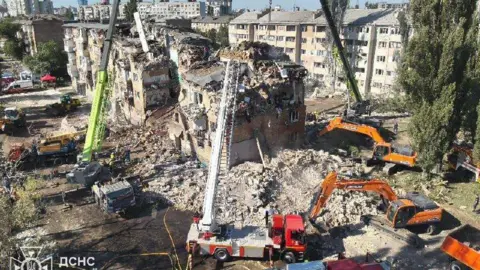Mali's military government has sought to calm anger over a blockade by Islamist militants on major highways where lorry drivers have been facing ambushes and arson attacks.
In a rare acknowledgement of the seriousness of the situation affecting the landlocked country, Prime Minister Abdoulaye Maïga has said measures are under way to improve security on the routes.
The blockade - a potentially serious escalation of Mali's jihadist insurgency - is particularly affecting the supply of fuel, which could cripple the country.
The Sahel region of West Africa is known as the epicentre of global terrorism, accounting for more than 50% of all terrorism-related deaths.
Several analysts say the aim of the al-Qaeda-linked militants is to impose a blockade of the capital, Bamako.
The blockade appears to have started with the kidnapping and subsequent release of six Senegalese lorry drivers along the Dakar-Bamako corridor in early September.
This is not a new tactic by al-Qaeda's Sahel affiliate - Jama'at Nusrat al-Islam wal-Muslimin (JNIM) - but the scale is increasingly ambitious.
They have imposed a blockade on two key locations: the Kayes region - which serves as the gateway for all food supplies entering from Senegal by road and train, and Nioro-du-Sahel - which sits on the main route linking Mali to Mauritania.
Reports say Islamist fighters have erected checkpoints to restrict the flow of goods and extort 'taxes' from traders.
They are said to have torched fuel tankers, lorries and buses, abducted foreign drivers and attacked convoys carrying fuel imports from Senegal and Mauritania.
Entire villages have reportedly been brought to economic standstill, with markets shuttered, transport halted and public services disrupted.
Suspected JNIM militants have also ambushed fuel lorries from Ivory Coast in Bougouni, in Mali's southern Sikasso region. Several lorries were torched.
'Economic asphyxiation' is the militants' goal, Mamadou Bodian of Senegal's Cheikh Anta Diop University told the BBC.
He and others point to a strategic shift by the militants, who no longer rely solely on military confrontation to assert territorial control.
Analysts fear that, if successfully implemented, the embargo announced by JNIM on Kayes and Nioro-du-Sahel could paralyse western Mali.



















